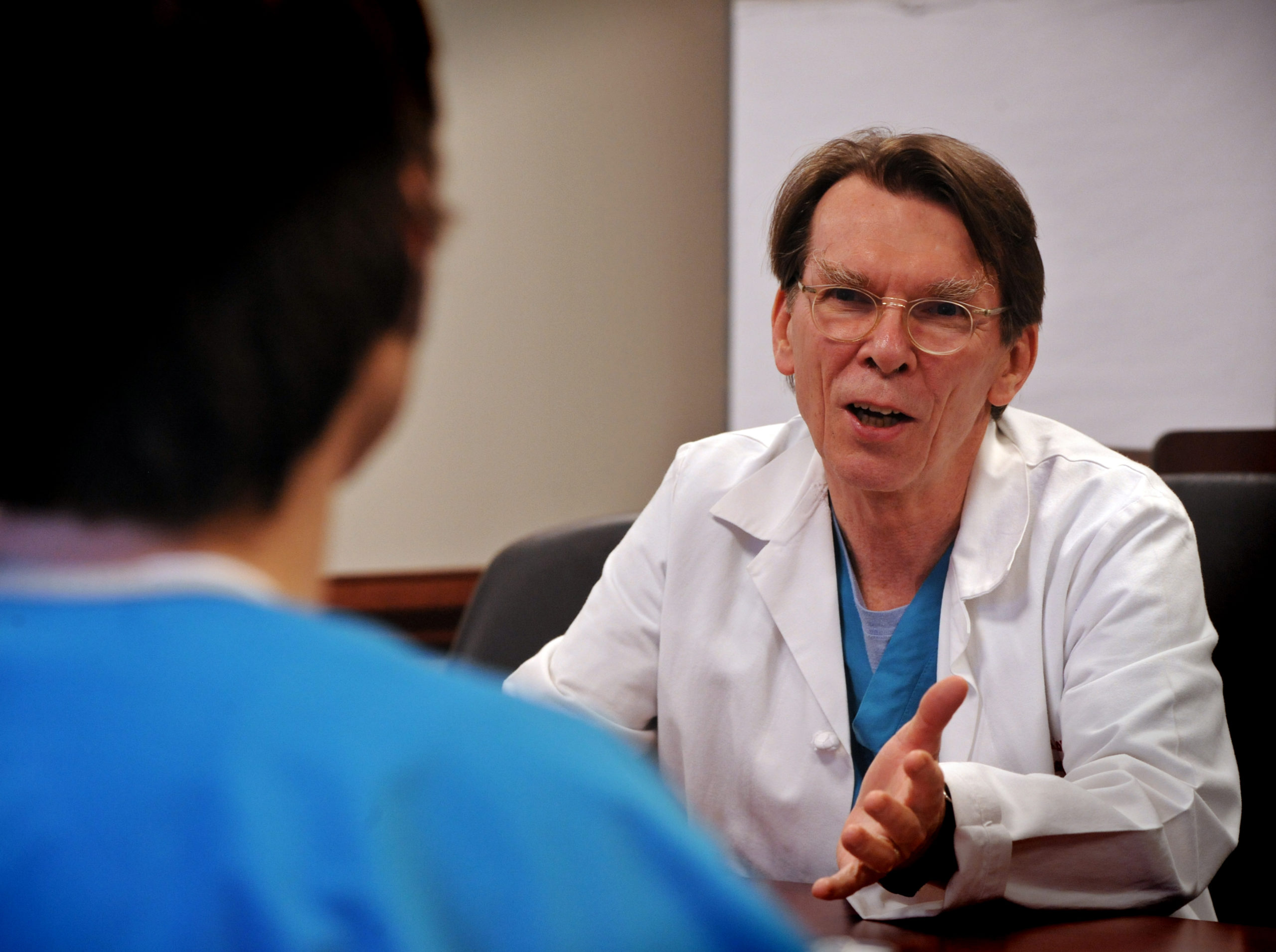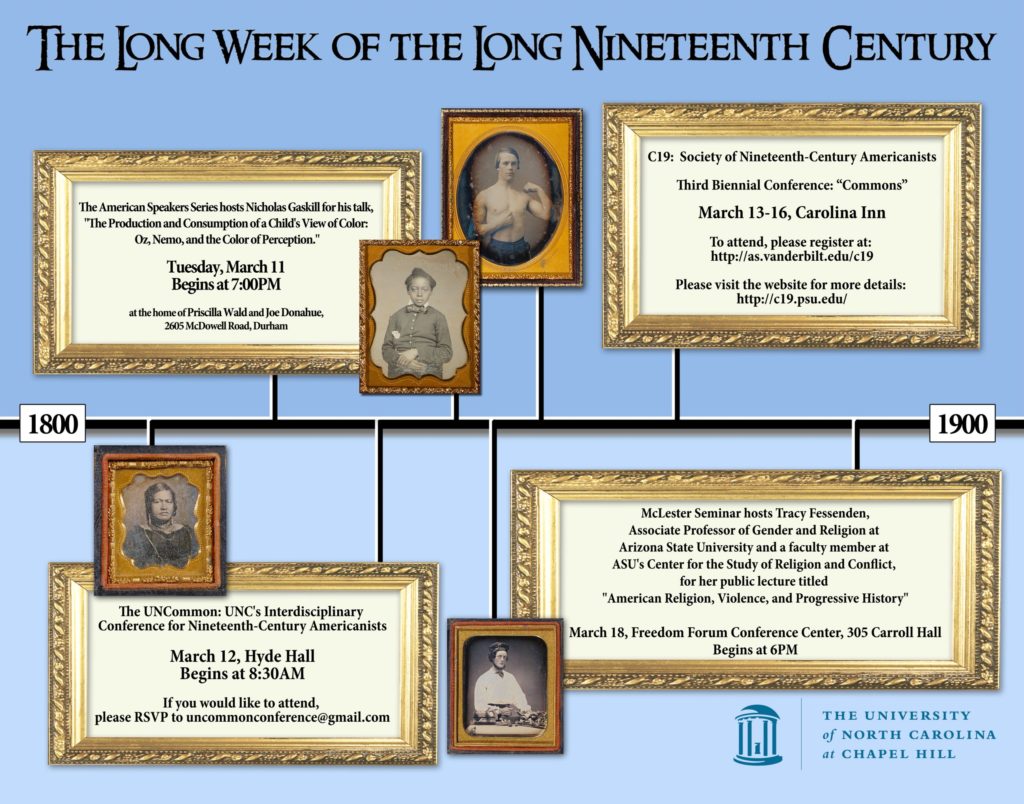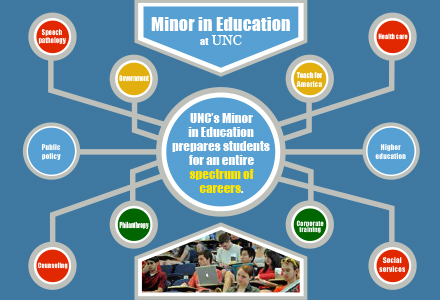
If you’d known him then, you wouldn’t be able to picture him now.
“Anybody looking at me in 1969 walking onto the campus of UNC would not have predicted I’d be sitting here now with the kind of career I’ve had,” said Vincent Kopp. “Even I would not have predicted it.”
As a pediatric anesthesiologist at a major academic institution, Kopp trains medical students and residents based on knowledge he amassed not only as a scientist, but also as a lifelong learner who credits a strong humanities education as the foundation for his career.
“You don’t know when a student is going to come back
10 years down the road and say, ‘I had a thought in my English class that helped me create a new product for my company,’” said Kopp, clinical associate professor in the School of Medicine’s departments of anesthesiology and pediatrics. “You cannot predict now how anyone’s career will take shape.”
A liberal arts education
As a high school student in Raleigh, Kopp performed equally well on math and verbal portions of the SAT, and he arrived at Carolina with an open mind.
“I excelled at the sciences, but I gravitated toward the humanities. I went on to double major in English and religion,” he said. “My analytical skills were more honed by studying English literature and the world’s religions than my science courses.”
He liked his science classes, but they were more about developing a certain vocabulary, he said. In his humanities courses he learned the methodology he didn’t know he’d need years later in medical school: how to approach an idea, look for evidence, record that evidence and make an argument.
Kopp said during the late 1960s and early 1970s, ideas flowed freely at Carolina and he never felt limited to one path. He took required courses in subjects like chemistry and calculus, advanced French and independent studies in literature, and he bonded with many of his professors.
It was in a religion class with William Peck where “the world opened up,” he said. “It wasn’t just a course in religion, it was a course in how to think, how to withhold judgment on certain topics until you’d looked at them from different perspectives.”
In the meantime, he was responsible for administering insulin to a blind diabetic student on his hall in Manly Residence Hall and learned that sticking someone with a needle didn’t bother him.
“It was the most natural thing in the world,” said Kopp, who had also become familiar with the medical side of campus by working at the Health Sciences Library.
As he worked toward his bachelor’s degree, he never put any limits on what he should be when he grew up. “I didn’t let college get in the way of my education,” Kopp joked.
A continuing education
After graduation, Kopp toyed with the idea of opening his own bookstore while he worked at B. Dalton Booksellers in Raleigh where he got “a basic bootstrap education in business.”
It was during this time that he read “Let Us Now Praise Famous Men,” by the author James Agee and photographer Walker Evans, which documented the lives of people in the Depression-era South.
“I was blown away by the connection between literature and human need,” Kopp said. “This was something that attempted to connect written word and reality in a way that was primal and raw and unfiltered. This book worked on me at a very visceral level. My desire was always to help people, and this was something I needed to be doing.”
Shortly after that – September 11, 1974 to be exact – Kopp felt “a clear calling.”
“I woke up and said to myself, ‘I’m going to medical school.’”
He returned to Carolina as a special student to complete the necessary prerequisites, and he worked in the neuropathology lab taking care of a rat colony. He was put in charge of anesthetizing and euthanizing the rats before electron microscopy, which he performed, and he published his first paper as a lab research technician.
Kopp thanks Weldon Thornton, one of his former English professors, for helping him realize the possibilities in combining humanities and sciences. He studied medicine like a language. Numbers, like words, were symbols with meaning.
“You acquire the vocabulary, make sure you know the basic meanings of the terms and then develop a sense of how they go together. Then you gain the ability to internalize and master that language,” he said.
Following new callings
Kopp completed a pediatric residency at Duke and then opened the pediatric practice Chapel Hill Children’s Clinic, which he owned for eight years before returning to UNC for an anesthesiology residency.
He joined the Carolina faculty in 1993, teaching an undergraduate honors class, starting the hospital’s Pre-Care program to help prepare children for surgery and holding a fellowship with the Institute for the Arts and Humanities.
By 2002, Kopp was ready for the next step.
With his children away at school, he followed another calling, this time to a small hospital in Elizabeth City. Like college, medical school and the residencies before, this was one more step down an educational path.
“I think my education gave me a set of lenses through which to view things, but I quickly realized there are laws of the land, and then there are laws people live by,” Kopp said. “Just being a good person and a good doctor in a good hospital doesn’t necessarily give you the whole picture.”
Putting to use his skills in an underserved area of the state allowed Kopp to engage with patients in a different way and learn from the hospital’s tight-knit community.
“It was a very rewarding experience. Going away helped me come back to Carolina with a set of fresh eyes and a new sense of purpose and excitement,” he said.
Lifelong learning
Kopp returned to Carolina’s Department of Anesthesiology in 2008 where, in addition to clinical duties, he supervises medical students, residents, fellows and certified nurse anesthetists.
As an educator, he’s still pulling from a lesson learned in a religion class with Ruel Tyson years back, where Tyson quoted Soren Kierkegaard: “We live our lives forward, but we understand them backward.”
Kopp was in his 40s, with a portion of his life to look back on, when he suddenly understood what that meant.
“I can remember how that would come back to me over and over through the years. It was one of the most important lessons I ever learned, and I went back to Ruel and told him that,” he said.
Kopp hoped Tyson felt that he had done his job well. “Maybe he thought, ‘That Vince Kopp, look at him now, he’s OK,’” Kopp mused.
Because the imprint of Tyson’s lessons had not been immediately measurable, Kopp is not as concerned with what a student thinks immediately after a lecture, class or conversation as he is with its lasting impact.
He wants the future clinicians with which he crosses paths to take away something bigger and deeper, even if they don’t realize it for years. One of those things: that medicine can be uncertain, no matter where you go, and not every student should be hammered into the same mold.
“You can live your life in such a way that you’re a taker and not a giver, or you can live your life to help others in a positive way,” Kopp said.


